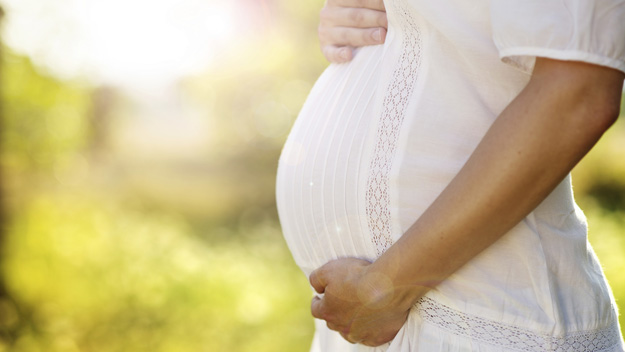Northwestern Study Links Pregnancy To Accelerated Aging
CHICAGO (CBS)--New scientific evidence from Northwestern shows pregnancy accelerates the rate of aging.
The findings reveal that with each pregnancy, cellular aging was accelerated by a range of six months to two years.
For the study, published this week in Scientific Reports, researchers examined two types of markers of cellular aging -- telomere length and epigenetic age -- in hundreds of young women with different reproductive histories.

"Telomere length and epigenetic age are cellular markers that independently predict mortality, and both appeared 'older' in women who had more pregnancies in their reproductive histories," said Calen Ryan, lead author of the study and a doctoral student in biological anthropology at Northwestern.
Ryan adds that even after accounting for factors that affect aging aside from pregnancy, the number of pregnancies a woman had was one of the most prominent factors in contributing to aging.
There's a twist in the research, however.
Ryan, along with co-researchers Christopher Kuzawa of Northwestern and Dan Eisenberg at the University of Washington, confirmed that women do look younger during pregnancy--but it doesn't last.
Paradoxically, cells looked younger while women were pregnant, the study says.
"If a woman was pregnant when the measurements were taken, her epigenetic age--and to a lesser extent her telomeres--looked 'younger' than predicted for her chronological age," said Kuzawa, senior author of the study and a professor of anthropology at Northwestern.
Kuzawa said pregnancy offers a sort of temporary fountain of youth, making a woman look 'temporarily young.'
But, as a woman gets pregnant more times, the study reveals a lasting, cumulative relationship between the number of pregnancies and accelerated biological aging.
Researchers have known from historical records and epidemiological studies that women who have many children tend to have slightly shorter lives and succumb to different diseases than those who don't.
"What we didn't know was whether we could detect these kinds of effects using measures of cellular aging," Ryan said. "We also didn't know if we would even detect such effects among the relatively young women in this population, all of whom were 20 to 22 years old at the time."
For the study, women in the Philippines were examined. The researchers note sociological conditions specific to the islands that may have affected the findings.
In particular, physical work is more common in the Philippines than in the U.S. and in Europe, where health risks associated with pregnancy could be lower, the study says.
"In the high-resource environments typical of Europe and the U.S., the health risks associated with pregnancy might be lower."
The researchers say that while there's good evidence showing that having more than four or five kids can increase the risk of certain diseases and shorten a woman's lifespan, they don't really know why.
"Our study points to cellular changes during pregnancy, possibly related to adaptive changes in the mother's immune system as a possible explanation," said Kuzawa, also a faculty fellow at Northwestern's Institute for Policy Research. "There's still a lot we don't know."
For instance, it's not clear whether pregnancy's effect on aging lasts later into life.
A follow-up study on the same women 13 years after the first measurements, taken in 2005, is already underway.
"We want to see if we can replicate these findings longitudinally and if cells still look older later in life," Ryan said. "We still have a lot of questions to address that we hope will help us understand how factors like socioeconomic status and diet might contribute to costs of reproduction in women."
The full finding is available here: "Reproduction predicts shorter telomere and epigenetic age acceleration among young adult women"



